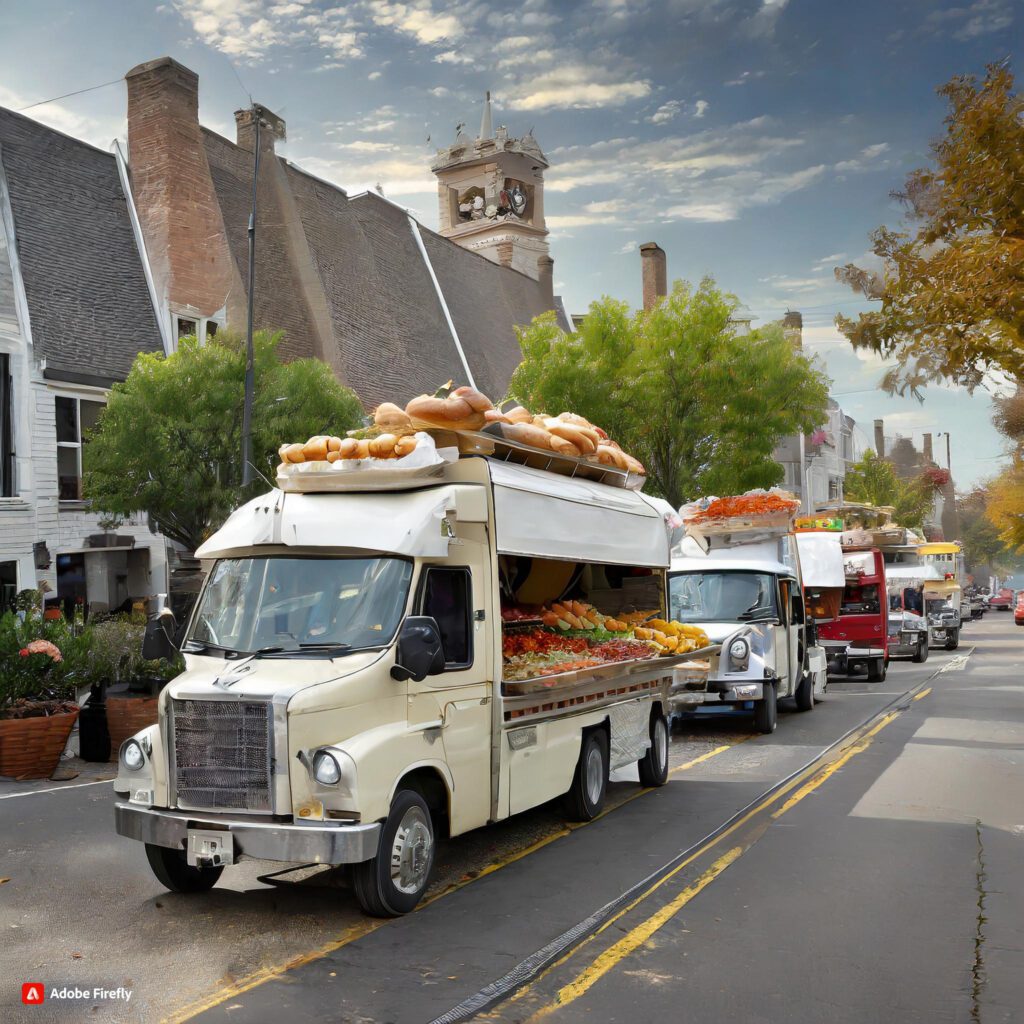Food trucks have become a quintessential part of urban landscapes, offering a diverse array of cuisines on wheels. From gourmet tacos to artisanal ice cream, these mobile eateries have revolutionized the way people experience food. In this article, we’ll delve into the fascinating world of food trucks, exploring their history, types, advantages, challenges, and how to start your own food truck business.
History of Food Trucks
The concept of selling food from a mobile vehicle dates back centuries. In the United States, the modern food truck movement gained momentum in the late 2000s, fueled by a combination of economic factors and a growing interest in street food culture. What started as a simple means of providing quick meals to workers has evolved into a culinary phenomenon, with food trucks now serving as incubators for culinary innovation.
Types of Food Trucks
Food trucks come in various shapes and sizes, each specializing in different cuisines and culinary offerings. Mobile kitchen trucks are equipped with full-scale cooking facilities, allowing chefs to prepare meals on-site. Specialized cuisine trucks focus on a specific type of food, such as gourmet burgers or sushi. Dessert trucks tantalize taste buds with sweet treats like cupcakes and ice cream.
Advantages of Food Trucks
One of the primary advantages of food trucks is their mobility and flexibility. Unlike traditional restaurants, food trucks can change locations based on demand, catering to different neighborhoods and events. Additionally, food truck owners benefit from lower overhead costs compared to brick-and-mortar establishments, allowing for more competitive pricing and higher profit margins. Furthermore, food trucks have the freedom to experiment with creative menu offerings, adapting to changing consumer preferences and culinary trends.
Challenges Faced by Food Trucks
Despite their popularity, food trucks also face several challenges. Regulatory issues, such as zoning laws and health regulations, can pose obstacles to operating a food truck business. Weather constraints, such as extreme heat or inclement weather, can affect sales and operational logistics. Moreover, food trucks often compete with established restaurants for customers and prime locations, requiring strategic marketing and networking efforts to stand out in a crowded marketplace.
How to Start a Food Truck Business
Starting a food truck business requires careful planning and execution. Entrepreneurs must first develop a unique concept that differentiates their trucks from competitors. Next, they should create a comprehensive business plan outlining financial projections, target demographics, and marketing strategies. Obtaining permits and licenses is essential for legal compliance, as is securing a suitable truck either through purchase or rental. Menu development should reflect the concept and cater to the preferences of the target audience. Finally, effective marketing strategies, such as social media promotion and participation in food truck events, can help generate buzz and attract customers.
Success Stories of Food Truck Entrepreneurs
Several food truck entrepreneurs have achieved remarkable success with their mobile ventures. From humble beginnings, they have built loyal customer bases and expanded their businesses through innovation and perseverance. Whether it’s a family-owned taco truck or a gourmet sandwich operation, these success stories inspire aspiring entrepreneurs to pursue their culinary dreams.
Impact of Food Trucks on Culinary Culture
Food trucks play a significant role in shaping culinary culture, introducing people to new flavors and culinary experiences. They serve as incubators for culinary talent, allowing chefs to showcase their skills without the high overhead costs associated with traditional restaurants. Furthermore, food trucks often participate in community events and festivals, contributing to the vibrancy and diversity of local food scenes.
Conclusion
In conclusion, food trucks have emerged as dynamic players in the culinary landscape, offering delicious meals on the go and redefining the concept of street food. Despite facing challenges, food truck entrepreneurs continue to innovate and inspire, bringing unique flavors and culinary experiences to neighborhoods across the globe.
Unique FAQs
- Are food trucks profitable businesses?
- While profitability depends on various factors such as location, menu offerings, and operational efficiency, many food truck businesses can be lucrative ventures with proper planning and execution.
- How do food trucks handle food safety and hygiene?
- Food trucks are subject to the same health and safety regulations as traditional restaurants. Owners must adhere to strict guidelines regarding food handling, storage, and sanitation to ensure the safety of their customers.
- What are some popular food truck cuisines?
- Popular food truck cuisines vary depending on location and cultural preferences. Some common options include tacos, barbecue, burgers, ethnic street food, and gourmet desserts.
- Can food trucks cater events and private parties?
- Yes, many food trucks offer catering services for events such as weddings, corporate gatherings, and private parties. They can customize menus to suit the occasion and accommodate dietary restrictions.
- How do food truck owners find locations to park and operate?
- Food truck owners utilize a variety of methods to find locations, including securing permits for designated food truck zones, partnering with businesses for lunchtime service, and participating in food truck festivals and events.
